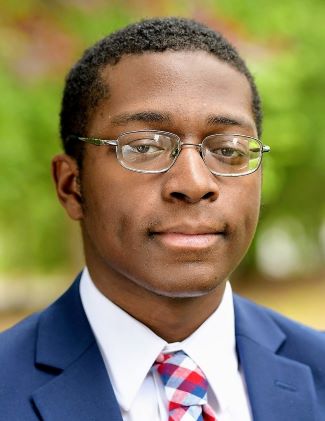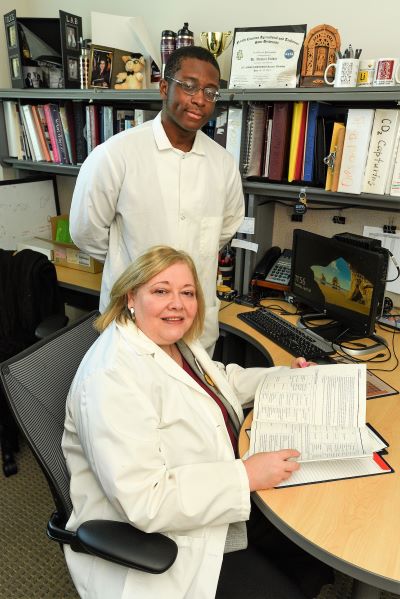
Leoneda Inge-Barry, a Durham, N.C. broadcast journalist, wrote an essay nearly four years ago for her employer’s website about the angst of sending her son off to college at the University of Maryland Eastern Shore.
The essay, in hindsight, proved prescient. Teemer, she pointed out, was diagnosed as an infant with sickle cell disease, “an inherited blood disorder that can cause frequent infections and chronic pain.”
In other words, he fits the definition of “immuno-compromised” now part of everyday conversations.
When UMES – and the world – confronted COVID-19 as a life-threatening pandemic, Barry had experienced a lifetime of closely monitoring his health, eating the right foods and taking extra precautions to keep himself safe.
“At first,” Barry said, “I approached it with a bit of fear. I’m used to dealing with a compromised system … although there was definitely a chance I was more vulnerable.”
He followed protocols with vigilance (reinforced by his mother’s constant reminders), got vaccinated, limited contact with peers to a small group of roommates and persevered. UMES employed aggressive mitigation policies that enabled the university to maintain a semblance of a routine academic calendar without interruptions.
Barry’s chronic condition did not hold him back from making the most of his time at UMES. In fact, he thrived.
Barry receives a degree in environmental sciences May 20 with a focus on marine science. A member of the Richard A. Henson Honors Program and dean’s list student, his grade point average qualifies him to graduate with honors. He’ll also be a third-generation college graduate.
“I’ve tried to take advantage of every opportunity here that I could,” he said.
That includes two summer internships with the National Oceanic and Atmospheric Administration – working remotely – to distill data into “range maps” the federal agency needs to track endangered species.
He describes the work as a “very detailed, complicated process … not very flashy.”
Nonetheless, Barry is well-versed on population trends for such migratory fish as steelhead trout, Chinook salmon and short-nose sturgeon.
This summer, he’ll head to Maine for a post-undergraduate internship with NOAA’s Office of Coastal Management, where he’ll continue working to help the agency shape guidelines and policies for protecting marine species.

In the fall, Barry will enroll in Rutgers University’s graduate school, where he’s looking forward to taking advantage of the New Jersey institution’s reputation as a diverse learning environment widely respected for its science programs.
In New Brunswick, he’ll focus on “ocean observing technologies, improving mapping skills and learning to operate autonomous ocean drones” – marine science lingo for miniature, unmanned submarines.
At UMES, Barry worked alongside Dr. Victoria Volkis as an undergraduate assistant in her chemistry lab, where as a recipient of a multi-million dollar grant she is conducting research for the U.S. Navy to find environmentally safe “anti-fouling strategies for the bottom of ships” and “how certain reactions take place within marine environments.”
In fact, Barry’s senior-year capstone project for the Henson Honors program was a report on his findings on “the probing of extracts from specialty crops and medicinal herbs.”
“He is a very strong person,” Volkis said. “He works hard, learns fast and never complains or asks for any special accommodations.
Volkis describes Barry, who turns 22 on May 23, as a “very smart student with clear and realistic goals (who) planned a way to accomplish (them)” and the results would make his family proud.
“I wanted to believe he was a normal kid,” Barry’s mother said, “and that there would be no obstacles to him graduating.”
“The last few weeks,” she said, “I’ve cried a lot. I’m so happy. It’s so emotional. It’s so special.”
- Mandatory COVID testing for all 277 degree candidates on Thursday, May 19.
- Commencement guests must submit a COVID vaccine card prior to obtaining tickets for the event in the William P. Hytche Athletic Center and will be asked to symptom-screen the morning of graduation.
- Each graduate will be allotted four tickets for guests.
- Limited faculty attendance.
- All guests will be asked to symptom-check and wear masks indoors.

